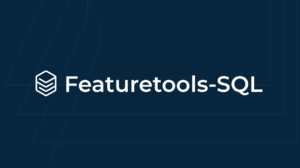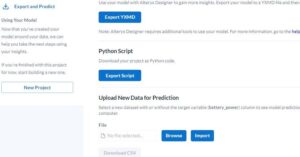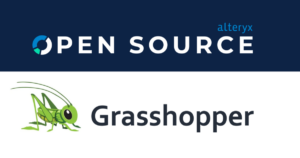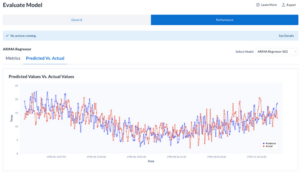
Happy birthday, Featuretools!
One year ago, we open sourced Featuretools, making it available to the entire world.
Featuretools was born from Deep Feature Synthesis, created with my co-founder, Kalyan Veeramachaneni, while we were at MIT’s Computer Science and Artificial Intelligence Laboratory (CSAIL). Our goal was to fill a critical gap when building end-to-end machine learning systems.
Over the past year, I’ve watched Featuretools mature into the most popular library for automated feature engineering in the world. Since its launch, I’m very encouraged to see that Featuretools has been downloaded almost 50,000 times from more than 100 different countries, with no signs of slowing down.

This demonstrates to us that automated feature engineering is truly starting to change the way the world approaches machine learning. Every week, I hear stories from users in every industry who have applied Featuretools to their machine learning workflows to automatically create more accurate models.
One great example is multinational banking group, BBVA, who used Featuretools to tremendously improve their credit card fraud prediction models. This enabled them to not only increase the accuracy of identifying fraudulent purchases by 91.4 percent, it reduced false positives (wrongly declined transactions) by more than 50 percent. This has allowed BBVA to save roughly $37 million dollars a year. You can read more about this project in MIT News.
We’ve focused on making it easy to learn Featuretools. You can get started with this great tutorial from Feature Labs’ own, Will Koehrsen. In it, he describes how to easily automate feature engineering within Python. After, be sure to see the numerous end-to-end ML applications built with Featuretools on our demonstrations page.
Looking ahead to the next year, the team at Feature Labs will continue to bring new innovations Featuretools so that people globally can benefit from quickly and easily building machine learning models. We will continue to introduce new tutorials, primitives for Deep Feature Synthesis and even open source machine learning applications where you can simply plug in your own data and start engineering features faster and more accurately.
We are looking forward to our company’s continued growth and are always on the lookout for software engineers who are passionate about machine learning and making it easier to use by the masses. If you’re interested in being a part of our future, please look at our careers page.






